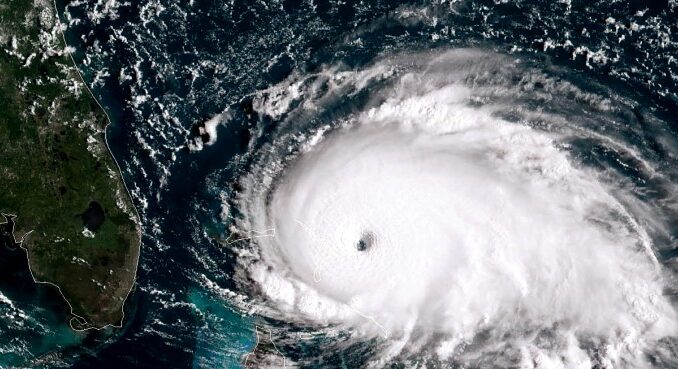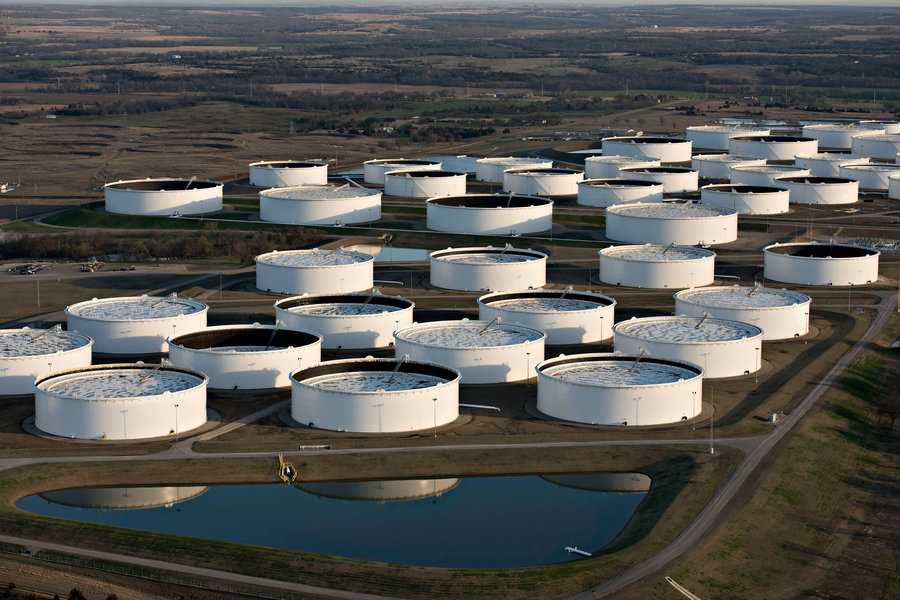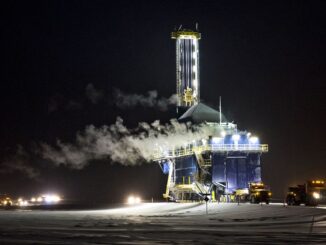
Among President Joe Biden’s first acts in office was reassembling a cross-government team to figure out the “social cost of carbon,” a wonky number that has broad impacts on federal agency rules.
Biden signed an executive order Wednesday directing the team to publish an interim social cost of carbon within 30 days. Environmentalists and climate scientists agree that undoing the Trump administration’s changes to how the social cost of carbon is calculated will play a big role in federal policy, as well as in states that take their lead from the federal government.
1. What is the social cost of carbon?
It’s the estimated cost to society of releasing a ton of carbon dioxide, the main greenhouse gas, into the atmosphere. The figure takes into account everything from lost agricultural productivity, to property damages from strong storms, to diminished fresh water availability—all because of climate change.
Considering the price that society is paying, or will pay, due to greenhouse gas emissions affects how regulators weigh the costs versus benefits of proposed rules. If a rule would increase emissions, the social cost of carbon is multiplied by the number of extra tons of greenhouse gases expected, and that figure is added to the rule’s costs. If a rule would lower emissions, the figure derived gets added to the benefits ledger.
2. How long has this been U.S. policy?
Since 2009. The Obama administration’s Interagency Working Group on the Social Cost of Greenhouse Gases set the first federal social cost of carbon at $21 per ton. When President Barack Obama left office in 2017, the figure had risen to $52 per ton.
But President Donald Trump disbanded the working group by executive order soon after taking office, and his administration came out with a new estimate that was as low as $1 per ton. A figure that low makes it easier for agencies to issue new regulations that are more permissive to industry, because they can more readily show the benefits outweigh the costs.
3. What is President Biden doing?
First, reconstituting the interagency working group, which pulls together experts from across the federal bureaucracy under the auspices of the White House Council of Economic Advisers and the Office of Management and Budget.
Next, Biden said he wants the group to put out an interim social cost that ensures agencies are accounting for the full costs of pollution from carbon dioxide and other greenhouse gases, “including climate risk, environmental justice, and intergenerational equity.”
In June, the Government Accountability Office said the EPA under Trump had arrived at its lower estimate because, among other things, it only considered domestic costs, rather than global costs. It is almost certain that the Biden team will revert to the government’s pre-Trump way of calculating the social cost of carbon.
Michael Greenstone, an economics professor at the University of Chicago, said reverting to the Obama-era calculations would yield a social cost of carbon of $125 per ton, assuming it took into account lower interest rates in recent years.
4. Does Biden need Congress?
No. The working group is housed within the executive office, so Biden has free rein to put the team back together. The same is true of calculating a new cost estimate.
Interagency task forces are very common on issues where more than one agency has a stake, said Naomi Oreskes, a climate science professor at Harvard University. And Biden wants climate considerations to be part of every agency’s mission, not just the Environmental Protection Agency.
“That’s not to say that the usual suspects won’t get out their forces to try to undermine, challenge, or deny” the working group’s new findings, Oreskes said. “In the past they always have.”
Any figure the Biden team comes up with could be challenged in court, so the working group would be well advised to show its work through a formal notice and comment procedure, Greenstone said.
5. What have the courts said?
Judges have ordered a lot of additional climate analysis in recent years, but they haven’t often dealt directly with the social cost of carbon. When environmentalists have sued to force agencies to use the metric in their environmental reviews, courts have often required additional analysis but deferred to agencies to decide which analytical tools to use.
The Federal Energy Regulatory Commission, for example, has for years rejected calls to consider the social cost of carbon in pipeline decisions, saying the metric is too speculative to be useful. Courts have largely accepted that, though groups are still pushing the issue in various cases.
In one major 2020 ruling, a federal judge delved into the technical aspects of the social cost of carbon, and faulted the Trump administration for using an estimate that ignored global climate impacts.
To contact the reporters on this story: Stephen Lee in Washington at stephenlee@bloombergindustry.com; Ellen M. Gilmer in Washington at egilmer@bloomberglaw.com
To contact the editors responsible for this story: Gregory Henderson at ghenderson@bloombergindustry.com; Anna Yukhananov at ayukhananov@bloombergindustry.com
Bloomberg Law



